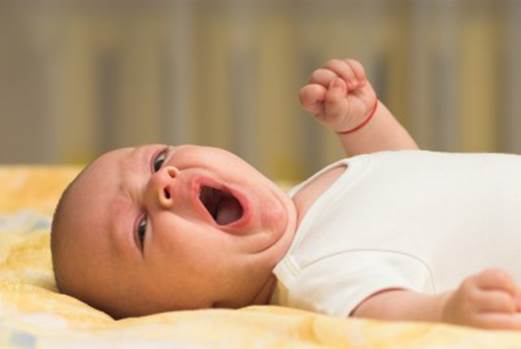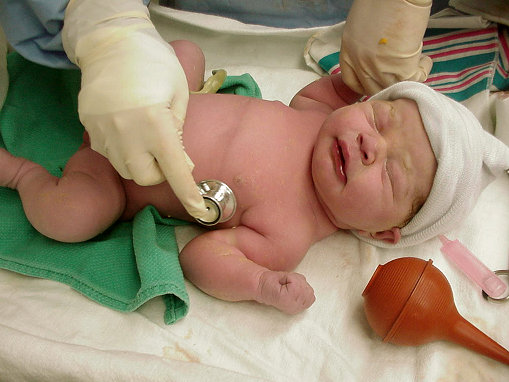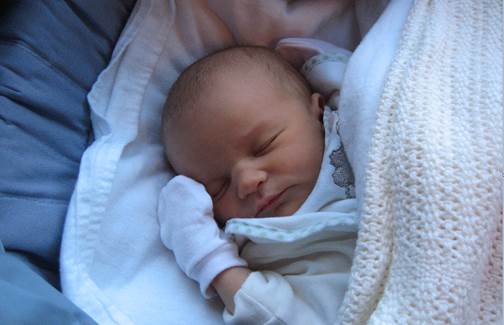You are about to delivery? So let prepare
carefully for surprising things that your babies give you.
Baby’s lips are blistered
Because sucking is quite strong during
breastfeeding and bottle feeding, lips of newborn babies are easy to be
blistered and rough. In some cases, newborn babies have had blisters on lips since
born because they have suck thumbs since being in mother’s body. In fact,
little cracked and swelling lips’ skin helps babies easy to catch nipples.
Phenomenon of blister on lips will decrease
gradually in few months later, or they can be cured right on the next day.

Some
newborn babies have suffered from blister on lips right after being born.
Infants have liquid excreta as diarrhea
Breastfeeding babies usually go to stool
with liquid and mustard yellow excreta while formula feeding babies take with
solid and brown excreta. Some goes to stool dozens of times a day, but others
just 2-3 times a week. As long as babies gain weight regularly and do not have
stomachache or flatulent, more or less stooling depends on body condition of
each baby. Therefore, you do not need to worry.
In fact, it is difficult to distinguish
normal stool and diarrhea in newborn babies, especially when you are
breastfeeding your babies. Normally, breastfeeding babies usually have needs of
stool right after eating (this is excretal reaction of stomach means whenever
put milk into stomach, babies’ digestive system start excreting in order to
balance inputs and outputs). Their excreta are more liquid, so you should be
familiar with it to identify what normal standard of babies is. If the standard
changes suddenly about frequency and quantity, you should take them to visit
doctor as soon as possible.
Babies always sniff and sneeze
Newborn babies sneeze a lot, but do not
because they are cold or ill. Simply, that is way to helps to clean their
congested respiratory tract. Sneeze is also an effective method to make their
nose expand again. For breastfeeding babies, position of breastfeeding can make
one side of their nose be pressed on mother’s breasts and be flat; sneezing
after feeding as a reaction to inflate nose again.

Newborn
babies sneeze a lot, but do not because they are cold or ill.
Baby’s skin is dry and peeling
In environment of amniotic fluid, baby’s
skin is protected by white membrane as wax layers. But when contacting with
air, this membrane will lose and the skin becomes dry, peeling. Babies can be
peeled on whole body, but usually in hands and feet. Do not try to peel these
scales out and also do not expense for baby’s lotion. This situation will not
last over 1-2 weeks after birth.
Baby’s breath seems strange
In the first time in role of parents, you
may be very worried when waking up at midnight, touching your baby, and
recognize that its breath is abnormal. Calm down! Newborn baby’s breath is
broken and then be quick is normal phenomenon. Sometimes, broken breath is a
part of development of diaphragm (which controls movements of breath) and
nervous system; stop breathing under 20 seconds in infants is considered
normal. In about 6 weeks old, babies will stabilize their breathing.
Being worried about Sudden Infant Death
Syndrome totally has foundation and easier to understand. Let your babies lie
on their back, take all toys, pillow out of cradle, and do not smoke. If your
children stop breathing over 20 seconds and change into cyanosis, call
emergency immediately.

Newborn
baby’s breath is broken and then be quick is normal phenomenon
Crying sound is similar at any time
You heard that many mothers just listen to
cry of their children to know they are hungry, ill, or need to change diapers;
but you feel crying sound of your children is similar at any time. If you have
not learnt their language, be patient! Maternal instinct will lead you.